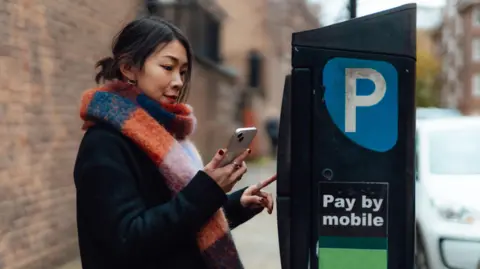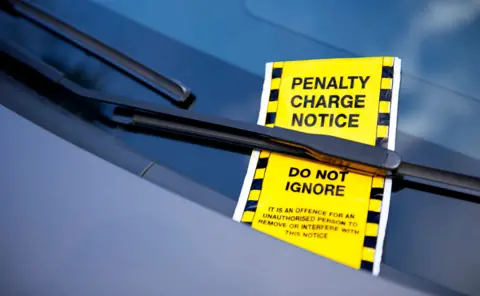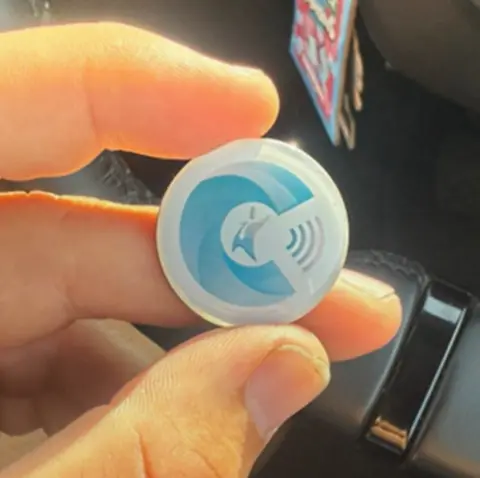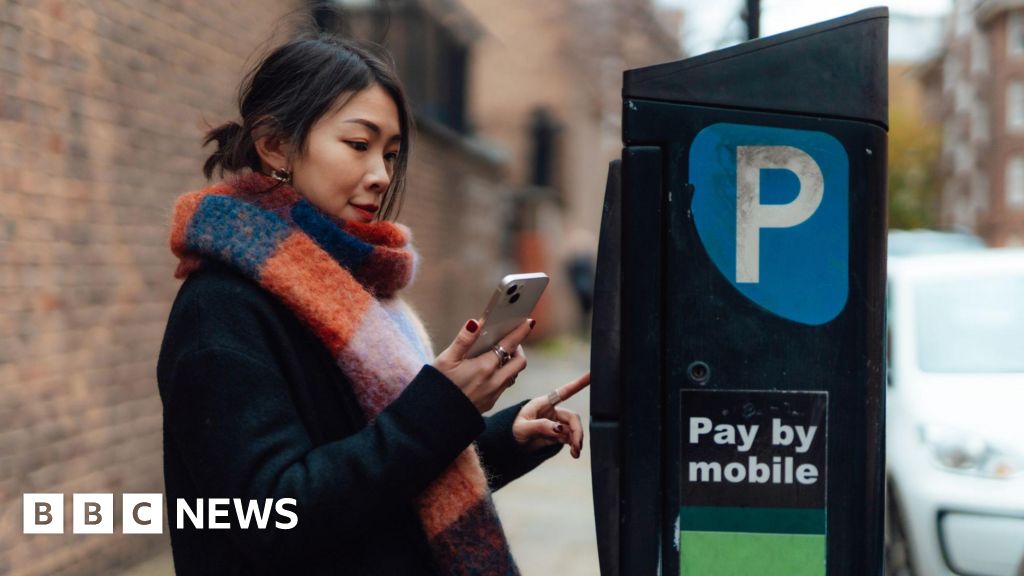 Getty Images
Getty ImagesFresh warnings have been issued by police forces and councils across the country after a rise in parking scams over the summer.
From fake text messages about unpaid tickets to tampered car park machines that secretly steal your card details, fraudsters are becoming increasingly creative.
BBC scams expert Nick Stapleton told Morning Live there are easy ways you can protect yourself so you don’t fall victim to some of the most common tricks.
1. Check your fine has these three details
 Getty Images
Getty ImagesGenuine parking notices always contain certain details.
“Real parking fines will include vehicle registration, the time of the offence and the location it happened,” Stapleton says.
“If it doesn’t have these three things then it is a scam.
“A genuine fine will always come in writing and will be left on your windscreen, handed to you in person or arrive in the post.”
There are three types of fines you may receive – a penalty charge notice issued by the council, a fixed penalty notice issued by police usually linked to offences such as speeding and a parking charge notice issued by a private company.
Parking charge notices “aren’t technically fines, they’re invoices for breaching parking rules”, so you don’t always have to pay them but “check carefully before refusing to pay”.
2. Don’t click on links in texts
If you get a text out of the blue saying you owe money for an unpaid parking ticket, stop before you click. One of the most common tricks is a fake text or email demanding payment for an unpaid fine.
These texts usually come with a link you are told to click on to pay the fine and “use urgent and threatening language to make you panic”, Stapleton says.
Some scam texts might say your licence will be revoked if you don’t pay for the ticket but “that’s not how it works, you won’t lose your license”.
Some links in these scam texts take you to websites that look like official government ones.
If you’re not sure a website is legitimate you can “click around on the other links”.
“If you click through on other links on the page you’ll notice that they don’t work and that’s a clear sign it’s a clone site,” says Stapleton.
3. Restart your device and change passwords
If you have clicked on a suspicious link, don’t despair – but do these three things:
- Restart your device: A lot of the links allow a scammer to gain remote access to your device. If you restart your phone or laptop it will kill the connection
- Change passwords: If you’ve filled in your details on the link make sure you change your passwords to any accounts with money in
- Call your bank: Inform your bank’s fraud department about the message, the link and what information you gave
You could also consider installing antivirus software then run a search to see if any malware has been installed.
4. Check for skimming devices on parking machines
 Morning Live
Morning LiveA new scam, which is increasing according to the UK’s national fraud reporting centre Action Fraud, targets people paying for parking at machines.
Fraudsters attach a physical device to a contactless payment reader on a parking machine and when you try to pay, the machine displays a “card declined” message.
“While you walk off to try another machine, the skimming device has already stolen your card details,” Stapleton explains.
Here’s how to check whether the machine has been tampered with:
- : Check there is no extra sticker or item placed on top of the contactless payment button
- Verify Branding: Look for the correct logos and branding. Scammers often use stickers with mismatched logos
- Trust Your Instincts: If something looks or feels suspicious, do not use the machine
“Contactless readers should look like they’re part of the machine. If something looks bolted on or mismatched, it’s best not to risk it,” he says. “Always trust your gut.”
If you do feel like there’s something not quite right with the machine you can pay in cash instead or through a parking app.
Watch Morning Live to get the full details on how to protect yourself from the scams

